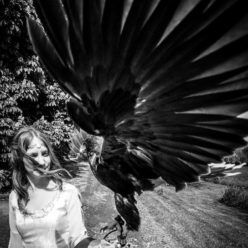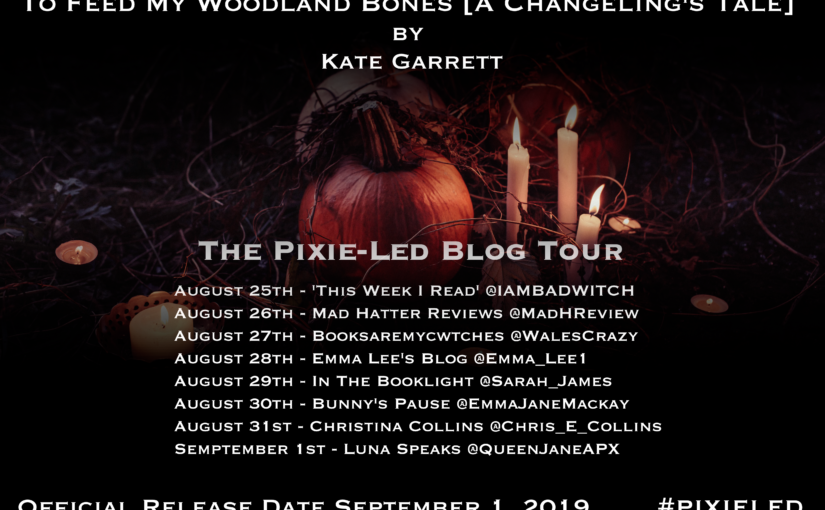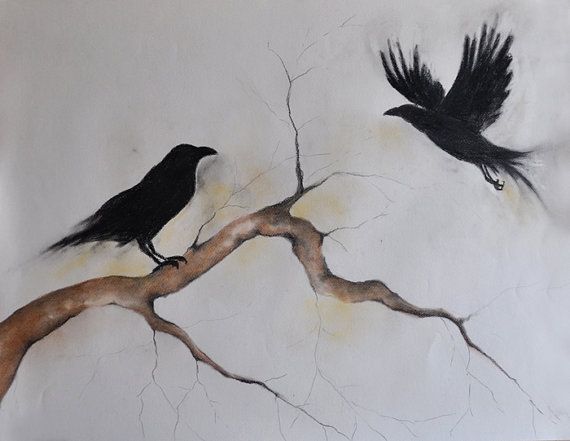[A Changeling’s Tale] by Kate Garrett – Poetry Review
What makes this collection so captivating is its duality. There is the magical element; the image of the changeling: unwanted, misplaced, caught between worlds and doing its best to manage. Looking at each poem with this mirror reflects this surreal and fascinating character, the ‘merry wanderer of the night’ which so captures the imagination. But this is overlaid with the autobiographical mirror, stories of abuse and survival are transposed over the top of the mythical and both reflect each other. Reality and magic in this collection are woven together, like two eyes you can swim in, both different, both true.
A magical and unreal world is created as a backdrop for every real and traumatic moment. This leaves the reader in a state of suspense, always on the edge of horror, but soothed and kept at arms’ length by a childlike mystery. The poems ‘This Mortal Coil,’ ‘Changeling,’ and ‘An elf turns inside out for the dragon’ speak of very real human loss, isolation and despair. In the first, voice is given to the grief that ‘makes your solid shape unbearable;’ poignantly encapsulating that familiar sensation of wanting to give up; lie down and die when we are bereft. The speaker in ‘Changeling’ is ignored and alternately unliked and unloved by her mother, contrasted with the instinctive nurturing of the mare to her foal. This mother figure ripens eventually to the titular dragon picking ‘drive-thru-visit hoards’ from her teeth with the speaker’s ‘toothpick legs’ – the lair is set and strewn with bones which solidify into the starving ‘skeleton’ of this poem.
But between horrors, and even within them, the world beautifully glimmers. A woodland garden is incanted into being with purple valerium, playful duelling spiders, midnight moon temples, tentacle-waves and razor clams, will o’ the wisp and honey rain. The imagery enchants and weaves magic into the every-day, the changeling from faery walks into the human world trailing glowing beams of spells. The senses are drenched, and we drift away into this bewitching folk land. Garrett decorates it and plays dress-up with her metaphors; ‘an elf summons/ a storm/ and wears her windblown/ water evening gown’ and harvests ‘the sparkle off a slug’s back’ for ‘gemstones.’
And for me, it is this slug sparkle that stands as a major image of this collection – it is a work of transformation. And much of that transformation is just about how you look at things. These poems are of the bravery and strength of surviving – as a changeling exiled from the otherworld or as a human battered in, and exiled from, our own. The changeling is not only exchanged but changes; transformation is the essence of these poems. Darkness is transformed to swirling stars, horror to magic, trauma to birth; power and strength are seized and the elf pixie actively summons storms and songs and makes new life. The recurring motif of the crescent moon in the final poem, the woman’s symbol of growth, birth-magic and love represents the survival and change. The collection culminates with a tumbling prose paragraph of heady, breathless, hardly-daring-to-believe happiness in love, in children, in acceptance of the past and making change for the claimed future. This is the magic we can all strive for and Garrett leaves us this beautifully hopeful image of renewal. Look at the slug and see the finger gemstones.
I have no idea if my highfalutin interpretation is what the poet meant at all. Any active assertions of what these poems ‘are’ or are ‘about’ are my own thoughts, what I loved about them, and what I took from them to keep for myself. This will always be influenced by my own context.
But I loved them.
Kate Garrett’s chapbook is published by Animal Heart Press.


